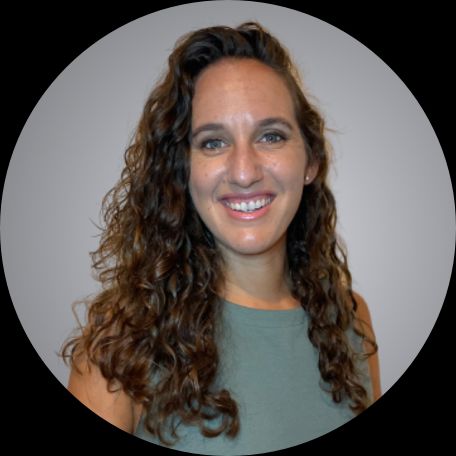Caregivers, Nurses and CNAs: What’s the Difference?
What is the difference between a caregiver, a Registered Nurse (RN) and a Certified Nursing Assistant (CNA)? Seniorly explains the differences between these roles and how they each support older adults.

If you’re just starting to research caregiving options, you’ve likely been overwhelmed by a new set of terminology and language regarding care. Caregivers, Certified Nursing Assistants and Registered Nurses all play an important part in the caregiving network, yet many are confused by the difference between each role. So, what’s the difference between a caregiver, a certified nursing assistant and a registered nurse?
Caregivers
Caregivers provide basic help and companionship: helping a senior with household chores, preparing and eating meals, or simply reading aloud, playing games, or writing letters. Some caregivers can board with a senior so they have someone there for them 24/7. You may even be able to engage a companion from an outside agency for a loved one in an assisted living community, if you feel they need more attention or friendly one-on-one time.
Certified Nursing Assistants (CNA)
CNAs can do all the things a caregiver can, but they can also offer personal care like help with bathing, toileting, or moving safely (from a wheelchair to a bed, for example). CNAs also oversee a senior taking their medications (though they cannot administer it themselves). CNAs are trained to provide more robust and (potentially) intimate care services than caregivers. In hospitals, CNAs work to help patients use bedpans, turn over, or shave them in preparation for surgery. In an assisted living community, they can help residents use the bathroom (or help manage incontinence), get out of bed in the morning, or remind seniors to take their medications on time. They are trained in the best ways to safely help disabled people move around, make sure seniors are eating well, and generally provide compassionate care every day.
Nurses (RN)
Nurses can specialize in certain types of nursing and medical care (surgical assistants vs. labor and delivery, for example). They can administer medications (including intravenously or via injection), provide wound care, and other medical procedures that CNAs and caregivers are not licensed or trained in. You can also find RNs who will make home visits (home health aides) or provide patient care at senior living communities, usually at skilled nursing facilities. Medicare may pay for skilled nursing care provided at home under limited circumstances, such as following surgery or during a patients’ rehabilitation efforts. Some communities might have a variety of roles on staff and be able to offer a mix of caregivers, CNAs and RNs to provide care to their residents.
In general the major difference between a Registered Nurse and a CNA lies in the degree of formal education. Nurses hold degrees, such as a Registered Nurse, and typically have a bachelor’s degree. CNAs acquire certifications. Both nurses and CNAs can specialize in specific areas, such surgery, maternity care, or mental health. Nurses can administer medications (including intravenously or via injection), provide wound care, and other medical procedures that CNAs and caregivers are not licensed or trained in.
Choosing your caregiving support system
It’s important to remember that one in five adults are family caregivers to aging or disabled relatives, and roughly 40% of care recipients live with the family caregiver. Even when family members are involved in the care of aging relatives, they will eventually need respite or going support from formal caregivers, especially as the seniors’ health deteriorates or caregiving becomes too difficult to juggle along with work, childcare and other demands .Once family caregivers reach their maximum, physically or emotionally, it may be time to explore outside help from paid caretakers.
The needs of your loved one will dictate whether a caregiver or a CNA are the appropriate choice for their care. A home caregiver could care for an older adult with dementia or Alzheimer’s but not someone who also has medical conditions that require daily medical tasks, such as changing out an infusion site for an insulin pump or the dressing on a wound. Most agencies will conduct an intake by phone or in person to help you determine what is most appropriate. Consider speaking with a senior living advisor for help knowing what level of care your loved one needs and what type of care will be best for them.
Family members as well as formal caregivers and CNAs can help seniors stay at home in familiar environments for a longer period of time. Once family caregivers reach their maximum, physically or emotionally, it may be time to explore outside help from paid caretakers.
If you’re exploring senior living communities, ask what kind of caretakers they keep on staff. The community director will be able to tell you whether their caregivers, CNAs and/or RNs are capable of handling your loved one’s needs. Be sure to think about how your loved one’s needs might change over time: some communities are designed to allow seniors to age in place, while others might not be able to provide nursing care for extremely medically needy cases.
Marlena del Hierro earned her Master of Arts degree in Gerontology from San Francisco State University and her Bachelor of Arts degree in Human Development from California State University. She also serves in an advisory capacity for Jukebox Health. Marlena is a vocal advocate for evolving the aging paradigm, and is a frequent contributor to public discussions about aging. She has served as a resource for media outlets like WGBH, FOX News, CNBC and the Today Show.
To learn more about Seniorly's editorial guidelines, click here.
Sign up for our Healthy Aging Handbook
Seniorly’s Senior Living experts created a comprehensive handbook to help people age happily while ensuring they love where they live. Enter your email address below to receive your copy and learn more about Healthy Aging and Senior Living.*
*By submitting your email address above, you consent to receive occasional email communications from Seniorly, including educational content and tips, newsletters, and other relevant updates and offerings. You can unsubscribe at any time and we will never sell or distribute your email address to a third party. You can view our Privacy Policy here.
